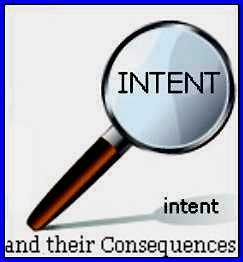The long awaited Wills, Estates and Succession Act (WESA) legislation is expected to come into effect within the next 5-6 months with an amalgamation of the Estate Administration Act, The Wills Act, The Wills Variation act rolled into one new overhauled statute.
Initially the legislation had proposed removing the right of an adult independent child to contest a parents estate on the basis that the parent did not adequately provide for the child in the will.
disinherited.com fought this proposal and prevailed so that the law was not changed in that regard from what it had been for almost a century.
Some of the more significant changes are as follows:
Power to cure deficiencies
Perhaps the most significant and only controversial change of all are these increased powers to remedy deficiencies”. There will likely be increased litigation over such “intentions” set out in emails etc.
Until WESA comes into force, the court has little power to cure a failure to comply with technical requirements in executing a will. WESA allows the court to look to another “record, document or writing, or marking on a will” to help determine the will-maker’s true intentions, and to give effect to them. Accordingly, the court will have the power to order that a written or electronic record stand as a person’s last will, for example:
an unsigned or improperly executed will
lawyer’s notes from discussions with the person
a copy of a will stored on the person’s computer or electronic tablet
an email sent from the person setting out his or her testamentary intentions
Marrying after Execution of Will
Currently, unless a will is stated to be in specific contemplation of marriage to a certain person, marrying after execution of a will revokes the will. WESA removes this requirement. It had been thought that this requirement may not be well-known by the general public, and thus could accidently frustrate the intentions of the will-maker. As well, given the rising number of common law marriages, this requirement would apply inconsistently to formally married and common law couples.
Age Requirements for a Will
At present, a person must be 19 years old to make a will. An exception applies to those that are or have been married, in order to protect the interests of spouses and children. However, this exception does not extend to unmarried minors with children and/or common law spouses. WESA reduces the age requirement to 16 and removes the exception for married minors so that unmarried and married minors are treated equally.
Witness as beneficiary
Currently, if a witness as to the will is a beneficiary or the spouse of a beneficiary under the will, the gift to that person is void. However, WESA will allow some flexibility in such situations. Specifically, it will allow the court to determine whether the will-maker (WESA’s term for ‘testator’) intended to make the gift despite the fact that the person was a witness to the will.
Power to rectify
WESA will give the courts greatly expanded powers to rectify a will. Rectification may be ordered if the court determines that the otherwise valid will does not carry out the will-maker’s intentions because of an accidental slip or omission, a misunderstanding of the will-maker’s instructions by the lawyer, notary or another person involved in the preparation of the will, or a failure to carry out the will-maker’s instructions in drafting the will.
It remains to be seen how far British Columbia courts will go in exercising this new authority.
The changes to be introduced by WESA discussed above give much greater leeway to give effect to the intentions of the will-maker, at the expense of reducing certainty. The court’s expanded powers will likely lead to increased litigation, such as by disappointed heirs coming forward with e-mail or other writings of the deceased to demonstrate that the will does not show the deceased’s “true intentions”.




